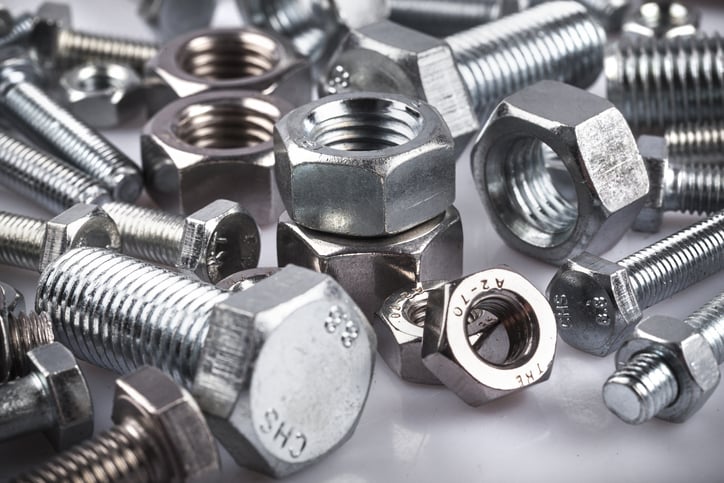Material Matters: What Makes a Fastener Truly Quality?
If you’re wondering what materials are used to make quality fasteners, you care a lot about the products you purchase.

If you’re wondering what materials are used to make quality fasteners, you care a lot about the products you purchase.
Fasteners are available in a broad range of specifications, and choosing the best for the intended application is an uphill task. Whether you want to use a screw, bolt, peg, rivet, clamp, or any other self-clinching hardware, you must carefully consider the material it's made of before making the final decision.
There are several factors that come into play that influence the effectiveness of a fastener. These include:
So, let’s take a look at what materials are used to manufacture quality fasteners, so you can make the right decision every time.
You already know that the material used to make a fastener impacts its effectiveness, but what materials are used to manufacture quality fasteners?
Manufacturers typically use steel to produce quality-grade fasteners. In fact, roughly 90% of all bolts and screws made every year are made from steel. Why? Steel is durable and has high tensile strength. It's also one of the most cost-effective metals in fabrication. Manufacturers may strengthen steel fasteners using chrome or zinc plating in specific circumstances.
Stainless steel is made from chromium and nickel. Chromium makes the metal highly corrosion-resistant and, therefore, long-lasting. The carbon properties prevent it from hardening effectively, making it stronger than most grade 2 plates of steel.
Most bolts and screws are made from grade 2, 5, or 8 carbon steel.
You'll also come across alloyed carbon steel. Alloy steel offers low corrosion resistance. But it typically needs an additional coating to make it less brittle.
Bronze fasteners don’t rust very often because they contain tin and copper alloy. The quality makes it ideal for aquatic-based applications like underwater construction.
Brass is an alloy of copper and zinc. It boasts similar electric conductivity and anti-corrosive properties as bronze. On the downside, brass is relatively softer and has lower tensile strength.
Fasteners are crucial to the success of many projects, whether you're a general contractor or a DIY enthusiast. Before you invest in fasteners for your next project, it's wise to have answers to what materials are used to manufacture quality fasteners. That way, you'll be one step ahead in the right direction to getting the best products for your project.
Finding the right one can eat into your time, but it doesn't have to be the case. Big Bolt will take the hassle out of the process by ensuring you get what you need when you need it. If you need a type of fastener that's not in our inventory, we will customize it for you and ship it to you the next day. Contact us today to get a free quote.
If you’re wondering what materials are used to make quality fasteners, you care a lot about the products you purchase.
Bolt head markings are a combination of letters, numbers, or both to help you identify the fastener that you’re looking for. If you know...
Bolt head markings are a combination of letters, numbers, or both to help you identify the fastener that you’re looking for. If you know...
